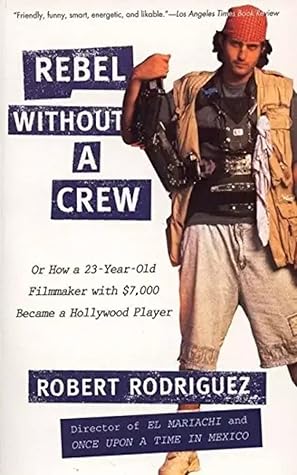Kindle Notes & Highlights
Read between
January 1 - January 3, 2023
On spec you are always judged by what you got paid for last. In other words, let's say I make this movie for TriStar. I'll get paid $250,000. If this movie bombs and no one wants to see it (I did credible work but let's say because of the subject matter it just didn't happen), my writing fee up front will at least double. My directing fee would at least triple.
I can't believe they tried to tell us in film school that we should think about if we wanted to get an agent or not. What's there to think about? With an agent your interests are taken care of; without an agent you're sleeping on a nightstand in Jorge's house.
What's an agent for again? Oh yeah. To protect your interests.
On the Taxi Driver disc Scorcese said something funny; he said that shooting a movie is a horrible experience. All day long people ask you questions questions questions, all day long, what do you want to eat? what color should this hat be? etc.
The most important and useful thing you need to be a filmmaker is "experience in movies," as opposed to "movie experience."
When learning to write screenplays, it's best to start with original material, rather than adapting someone else's work. You should also try and learn without taking a writing partner or partners. The experience is much more rewarding and you'll learn a lot more.
Make a movie that Hollywood could never make no matter how much money they have.
You're the audience now, looking through the lens at the actor. Is this the most interesting angle you can be watching this movie from?
You should learn every aspect of the filmmaking process no matter what area in film you think you want to go into.
Why is it that when you see movies in a theater today, they seem for the most part big and lifeless? The reason is because the energy was killed before the cameras ever ran.
On most movies, I don't see why someone would need more than fourteen days to shoot them.
So, how do you shoot fast? Rehearse it until you think you've got it, shoot it, then forget it. Move on.
Get used to the idea that you'll have to live with the first or second take and make it work later in the editing room. If you've planned your shots carefully you'll find you'll have all you need when you get to the cutting stage. Again, follow your instincts. The great thing about operating your own camera is that you know when you've got the shot.


